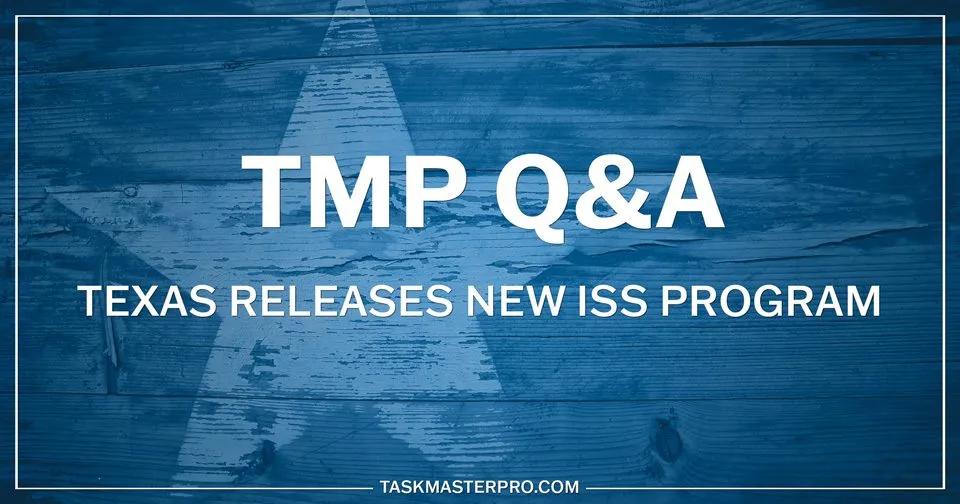Larry Hill is the founder of TMP, an IDD systems and workflow software platform that serves some of the largest providers in the country. He also founded Hill Resources Inc. and Living Resources LLC, which are ICF and waiver providers, and is a founding member of PACSTX—the Providers Alliance for Community Services of Texas.
For additional context, Larry is also heavily involved in lobbying efforts for the IDD community at the Texas State Capitol and before regulatory bodies, and TMP has been at the table advocating on providers’ behalf to make the ISS program as flexible as possible.
We sat down with Larry to get his thoughts on the progress of the new Texas ISS program.
Q. Due to your history in the state of Texas, you are in a unique position to talk about the efforts being made at a legislative level to improve the ISS program in Texas, as well as the changes to the program that took effect on March 1, 2023. Can you give us a breakdown of what is happening?
Larry: The overarching goal of the Individual Socialization Skills program (ISS) is to move clients’ day activities out of traditional day-habituation situations (where they would spend their time at one location) and into the community. Moving into an integrated community environment provides clients with many more opportunities to practice these skills.
The preliminary rules proposed around April 2022 would have moved all day activities off-site, but as of March 1, that was changed to offer clients a combination of on-site and off-site activities. This is something that is being pushed at the federal and state levels, though each state has its own set of rules.
Another big change to the Texas ISS program is how the provider’s time is billed. In the past, the provider’s time was billed at a daily rate, but it’s now billed on an hourly basis, regardless of whether the service is on-site or off-site.
Learn More About TMP’s ISS Module
“TMP’s goal is to advocate for a more positive system for the providers and those they serve. This advocacy has helped create a wider variety of activities and greater flexibility for the clients and the providers. And our ISS module makes implementing the changes a simple, straightforward process.”
Larry Hill – Founder of Taskmaster Pro (TMP)
Q: What sort of impact will these changes have on the providers’ day-to-day operations?
Larry: Providers are going to experience significant changes as a result of the new rules. Not only to how they bill their time, but to how they manage daily activities. And because the rules for provider-to-client ratios off-site are different from what they are on-site, providers will now need to adjust staff/client numbers on a per-outing basis. Keep in mind that off-site numbers can change from one day to the next—they can even change as the clients are boarding the van. Altogether it becomes a very fluid environment.
It’s important for providers to understand that this is more than just completing a billing log with the individuals. With this degree of client choice and movement, providers now have to plan for and differentiate between on-site and off-site locations and activities and contend with fluctuating staff-to-client numbers. For example, if you have seven people who are level needs ones and fives on the van, and a level needs eight wants to board, then your staffing ratios have to be adjusted before you can even leave the parking lot. If the ratios are off, you can be recouped.
And all of these adjustments have to be documented on an hourly basis. If providers don’t have a system in place that can accommodate that degree of flexibility and choice, they’ll be spending an hour every day on documentation, as opposed to one or two minutes using an ISS management system like TMP.
Providers are absolutely going to need our ISS workflow platform in order to navigate this efficiently and successfully, especially in a workforce crisis where providers are already struggling.
Q: Will those being served experience significant differences as well?
Larry: Absolutely. In the past, clients stayed in a single day-habituation setting where they worked on specific skills. Today however, clients have the opportunity to visit a variety of places in the community that meet the basic requirements of ISS. Having the freedom to choose on-site and off-site locations and activities not only fosters a sense of independence in these individuals—it provides a more dynamic environment in which they’re able to develop socialization skills as well.
Q: Can you contextualize the difference between trying to navigate the system without an EHR versus using an EHR like TMP? It seems like it’s going to be substantial.
Larry: It is substantial. There are a lot of moving parts to this. Without an EHR, the providers could spend up to an hour each day documenting on their eight individuals or their 16 individuals, as opposed to only a couple of minutes using an EHR like TMP. And because there are rules that have to be adhered to in TMP’s EHR that validate the forms, the accuracy of the documentation will be much greater.
Recognizing the difficult environment that providers are operating in right now, TMP wanted to create tools to make implementation so much simpler—tools to alert staff, to quickly and seamlessly document shifting circumstances, and to prevent providers from being recouped.
Q: Were there additional reforms that TMP and other Texas providers were advocating for?
Larry: We advocated for relaxing the ratio requirements and did get that changed to one-to-eight for off-sites, though we did not get what we asked for in terms of the eights and sixes. It’s currently a one-to-two ratio, which we feel is too restrictive, especially in a workforce crisis. We advocated for on-site ratios as well.
We advocated for the fee schedule, in terms of reimbursing your staff, to be at a higher rate, given the workforce crisis and the highly competitive environment. We pointed out that the rate adjustments in Texas have been deferred for many years so there’s a lot of catching up to do.
We also advocated for the use of electronic systems in place of paper forms. The initial decision was that providers had to use the state’s official forms with the official state insignia, which we felt wasn’t necessary for an EHR. TMP has been involved considerably in getting this reversed. We have workflows and management capabilities that could achieve the same outcome in a much more efficient manner, which would give staff more time to spend with clients, as opposed to spending that time documenting. We pointed out too that electronic records could be audited much more efficiently than paper forms.
We felt like it was a win-win on all three fronts.

Q: Is there anything you want to see changed about the Texas ISS program?
Larry: Yes. TMP and I have pretty much been leading the charge on the issue of competitive and supportive employment opportunities. I’m hoping that parents are paying attention because, as the rule stands, the majority of IDD individuals in the state of Texas do not have the capability to be competitively employed. There is a portion of our individuals that can and should be afforded this opportunity through supportive employment to develop the skills that will enable them to become competitively employed.
There is also a large segment of our population that simply does not have the ability to be competitively employed. However, they should have the right to work in a protected setting where they’re being taught and supported, even if they’re only able to work for half an hour. We used to be able to do that in day habilitation centers, but now in ISS, you have to check your clients out of that IDD program. And the state says the client can still work, but the state is not going to pay providers to monitor them, support them, and help them. The state is basically asking the providers to do that for free, in order to give our clients an opportunity, and for the provider to pay them for working, which is a big issue. That’s coming from a settings rule, and whether it’s coming from Washington or Texas, it needs to be changed so people don’t fall through the cracks. Right now, it’s all or nothing—you can either be competitively employed through the support of an employment track or you just visit the community without the opportunity to earn a small paycheck. Even if a person can only work for an hour a day, it’s still wrong for us to take that opportunity away from the individuals we serve in Texas. Texas is greater than this and we need to stand up for these folks.
Q: Do you see this program as a step in a good direction when compared to the way it was?
Larry: It’s a step in the right direction. As it stands, it’s a good program, but there is still work to do. The state needs to correct the ability to earn money while in ISS, and they need to correct the ratios for sixes and eights. If they do this, it will be a great program. TMP’s goal is to advocate for a more positive system for the providers and those that they serve. This advocacy has helped create a wider variety of activities and greater flexibility for the clients and the providers. And our ISS module makes implementing the changes a simple, straightforward process.
But in order to make the most of these changes, providers are absolutely going to need TMP.

